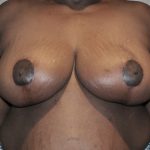Breast cancer continues to be a major health issue for women, averaging just under 200,000 new cases per year. It is the second leading cause of cancer-related deaths in women. From a plastic surgery standpoint, cosmetic breast surgery cases well exceed this number with over 500,000 procedures being performed per year. The crossing of these two breast treatments places plastic surgeons in a position to help improve breast cancer screening. Because all forms of cosmetic breast surgery produce irreversible changes to the breast parenchyma, the importance of presurgical screening is even more important.
In the November 2009 issue of the journal Plastic and Reconstructive Surgery, a published paper looked primarily at the behavior of plastic surgeons in knowledge and adherence to the American Cancer Society (ACS) Breast Cancer screening guidelines. The greatest relevance of their report, however, is to create awareness as to what preoperative breast screening should be done when cosmetic changes are anticipated to be done.
As a review of the ACS guidelines, women at average risk should begin self-breast examinations at least every 3 years for women in their 20s and 30s and yearly for woman over 40. Mammogram screening begins at age 40. This means that any woman undergoing cosmetic breast surgery under 40 should at least have a breast examination. Once over 40, all should have a mammogram as well.
These guidelines change for women at increased risk. A more aggressive screening program which may include MRIs should be done for women who are BRCA mutation carriers, a first degree relative of BRCA carrier and radiation exposure between the ages of 10 and 30 years of age. Women at increased breast cancer risk include two or more relatives with breast or ovarian cancer, breast cancer occurring before age 50 in an affected relative, one or more relatives with two cancers, male relatives with breast cancer, or a family history of breast or ovarian cancer with Ashkenazi Jewish heritage.

Barry L. Eppley, M.D., D.M.D.
Indianapolis, Indiana




